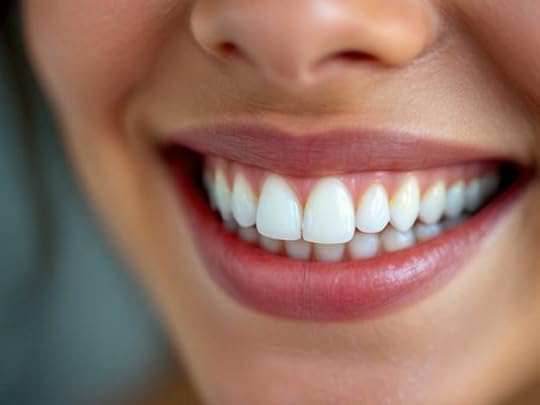What Can Teeth Tell Us About a Person?
Teeth are more than just tools for chewing food—they hold valuable information about a person’s age, health, lifestyle, and even genetic background. Forensic scientists, anthropologists, and dentists alike use teeth to gain insights into different aspects of an individual’s life. In fact, our teeth can serve as a biological record of our personal history, much like tree rings tell the age and environmental conditions of a tree. The study of teeth goes beyond oral health; it extends into forensic science, archaeology, anthropology, and even nutrition studies.
Teeth remain one of the most resilient parts of the human body, often outlasting bones in archaeological remains and forensic cases. Because of their durability, they provide invaluable evidence in scientific research, crime investigations, and medical diagnostics. The advancement of dental technology, including imaging solutions such as those provided by ProDENT, has further enhanced the ability to study teeth in greater detail, allowing professionals to diagnose conditions more effectively. This blog will explore what teeth can reveal about a person, from their diet and habits to their ancestry and overall health.
The Science Behind Teeth Analysis
Teeth are among the hardest substances in the human body, making them highly durable and an excellent source for scientific analysis. Enamel, the outermost layer of teeth, can preserve biological and environmental markers for decades, if not centuries. Through dental examination, experts can uncover a wealth of information, including:
Age and developmental stageNutritional and dietary habitsOral hygiene practicesSocioeconomic statusGenetic heritageSigns of disease or traumaPersonality traits and behavioral tendenciesLet’s delve deeper into each of these fascinating insights.
Age and Development: The Growth Timeline of TeethTeeth grow in distinct patterns throughout a person’s life, making them an excellent indicator of age. This is particularly useful in forensic and archaeological studies.
Primary and Permanent TeethBaby Teeth (Deciduous Teeth) – These begin to emerge around six months of age and continue developing until the child is about three years old.Permanent Teeth – These start replacing baby teeth around age six and continue growing until the wisdom teeth emerge, typically between 17 and 25 years of age.Teeth and AgingYoung adults generally have full sets of permanent teeth.In middle age, wear and tear become evident, with enamel erosion and gum recession.In elderly individuals, missing teeth, tooth decay, and bone resorption in the jaw are common indicators of advanced age.Diet and Nutrition: What Eating Habits RevealTeeth can provide clues about a person’s dietary habits based on the wear patterns and composition of the enamel.
Signs of Different DietsHigh Sugar Consumption – Cavities and tooth decay are common among individuals with high sugar intake.Acidic Diets – Erosion of enamel can indicate a diet high in citrus fruits, carbonated drinks, or acidic foods.Vegetarian vs. Meat-based Diets – A plant-based diet tends to cause less wear on teeth, while meat consumption, especially raw or tough meat, can lead to specific patterns of wear.Malnutrition – Lack of essential nutrients like calcium, vitamin D, and phosphorus can lead to brittle teeth, discoloration, and gum disease.Oral Hygiene and Lifestyle ChoicesA person’s oral hygiene habits are evident in the condition of their teeth and gums. Some common indicators include:
Good Oral Hygiene – Well-maintained teeth with minimal plaque and healthy gums.Poor Oral Hygiene – Cavities, bad breath, gum inflammation, and plaque buildup.Tobacco Use – Smoking or chewing tobacco stains teeth yellow or brown and increases the risk of gum disease and oral cancer.Bruxism (Teeth Grinding) – Worn-down teeth, chipped edges, and jaw pain indicate stress-related grinding, often linked to anxiety or sleep disorders.Teeth and Personality Traits
Beyond health and lifestyle, teeth can also offer insights into an individual’s personality. Certain dental characteristics and habits may be linked to specific behavioral tendencies.
Personality Traits Reflected in TeethPerfectly Aligned Teeth – Individuals with straight, well-maintained teeth are often perceived as confident, disciplined, and meticulous.Gritted or Worn-Down Teeth – Habitual teeth grinding is often linked to high-stress levels, anxiety, or a driven, perfectionist personality.Crooked or Misaligned Teeth – While some misalignments are genetic, they may also indicate a relaxed or carefree attitude, or a childhood habit such as thumb-sucking.Missing Teeth or Severe Decay – Can indicate neglect, financial hardship, or a lifestyle with little emphasis on self-care.Gum Recession and Jaw Tension – May be associated with people who are constantly under pressure, anxious, or aggressive in their approach to challenges.Frequent Dental Work (Whitening, Veneers, Braces) – Suggests a personality that values aesthetics, social status, or self-presentation highly.Teeth not only reflect physical health but can also give subtle clues about one’s psychological and social tendencies. A smile, its condition, and how a person maintains their teeth can play a significant role in first impressions and self-image.
Socioeconomic Status and Access to Dental CareThe condition of a person’s teeth can often reflect their socioeconomic background and access to dental care.
People with regular dental check-ups tend to have fewer cavities, less gum disease, and better overall oral health.Limited access to dental care can lead to untreated cavities, missing teeth, and severe oral infections.Cosmetic dental work, such as teeth whitening or orthodontic treatments, often indicates financial stability and prioritization of dental aesthetics.Teeth as a Genetic BlueprintTeeth can also reveal information about a person’s genetic background. Certain traits, such as the shape, size, and alignment of teeth, are inherited from parents.
Genetic Traits in TeethTooth Shape and Size – Some populations have distinct dental traits, such as shovel-shaped incisors common among East Asian and Native American populations.Third Molar Agenesis – Some individuals are genetically predisposed to not develop wisdom teeth.Enamel Thickness – Variations in enamel thickness can be linked to ancestral diet and evolutionary adaptations.ConclusionTeeth serve as a personal record of a person’s life, providing clues about their age, health, diet, personality, and even genetic ancestry. By analyzing teeth, experts can uncover valuable insights that extend beyond just oral health. Whether it’s forensic investigations, archaeological discoveries, or simply maintaining personal well-being, the study of teeth remains a fascinating and essential field of knowledge.
Understanding what our teeth reveal about us allows for better awareness of health issues, lifestyle choices, and even cultural and genetic inheritance. Additionally, forensic scientists and historians rely on dental records to uncover mysteries of the past and identify individuals in legal cases.
In today’s world, where appearance and health are closely linked, taking care of your teeth is more important than ever. Regular dental visits, proper hygiene, and a balanced diet not only enhance your smile but also ensure that your teeth continue telling a positive and healthy story. Whether you are someone keen on history, science, or personal health, paying attention to what your teeth communicate is an intriguing and worthwhile endeavor. So, the next time you brush, floss, or visit the dentist, remember—your teeth tell a story worth preserving!
The post What Can Teeth Tell Us About a Person? appeared first on Geek Mamas .



